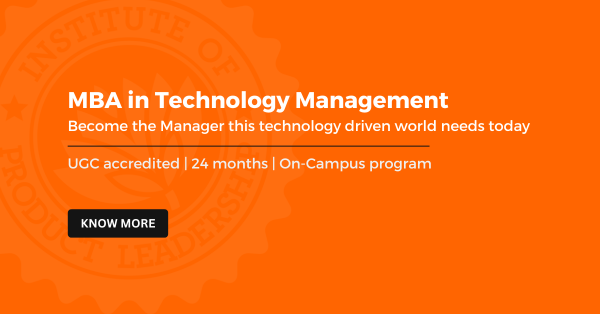1. Information Technology and Software Development
The IT and software development sector is the backbone of technological innovation, responsible for creating tools and platforms that drive global connectivity and productivity. Companies like Microsoft, Google, and IBM consistently push boundaries with cutting-edge products and services. These organizations need professionals who can effectively manage technical teams, oversee complex product lifecycles, and align innovations with broader business objectives.
Graduates with an MBA in IT bring a unique combination of strategic thinking and technical expertise. They often take on roles like Product Manager or IT Director, where their responsibilities include:
- Leading cross-functional teams to design, develop, and launch new software solutions.
- Strategizing the integration of emerging technologies such as AI, cloud computing, and machine learning.
- Ensuring the successful delivery of projects that enhance operational efficiency and customer satisfaction.
These roles are critical for businesses aiming to remain at the forefront of the rapidly evolving tech landscape.
2. Banking, Financial Services, and Insurance (BFSI)
The BFSI industry is undergoing a digital revolution, with fintech innovations reshaping traditional banking and financial services. Companies are adopting technologies like blockchain for secure transactions, AI for fraud detection, and robotic process automation (RPA) to streamline workflows. This sector is not just about managing money—it’s about leveraging technology to build trust, enhance customer experiences, and improve operational transparency.
Graduates with an MBA in IT are indispensable in this transformation. Roles such as Fintech Product Manager, Data Security Analyst, and IT Compliance Manager focus on:
- Designing secure digital banking platforms that meet modern customer expectations.
- Using AI and analytics to provide personalized financial recommendations.
- Ensuring compliance with ever-evolving regulatory frameworks to maintain operational integrity.
These professionals bridge the gap between financial expertise and technological solutions, helping organizations cater to a tech-savvy clientele while securing their systems against emerging threats.
3. E-commerce and Retail
The e-commerce and retail industry thrives on data-driven decisions and seamless customer experiences. Giants like Amazon, Flipkart, and Walmart rely on advanced IT infrastructures to manage supply chains, forecast demand, and personalize shopping experiences. Technology enables retailers to cater to a global audience, deliver orders faster, and maintain an edge in a competitive market.
With an MBA in IT, professionals are well-equipped to take on roles like E-commerce Operations Manager, Supply Chain Analyst, or Data Analytics Lead, where their contributions include:
- Optimizing logistics and inventory management using AI and predictive analytics.
- Creating personalized shopping experiences with recommendation engines powered by machine learning.
- Developing mobile-first strategies to enhance user experiences across devices.
These roles are essential for companies aiming to scale their operations while ensuring customer satisfaction remains high.
4. Healthcare and Pharmaceuticals
The healthcare and pharmaceutical industries are leveraging technology to improve patient outcomes and streamline operations. From telemedicine platforms that enable remote consultations to wearable devices that monitor patient health in real-time, IT solutions are transforming how care is delivered.
Graduates with an MBA in IT can step into roles like Health Informatics Director or IT Project Manager, where they play a pivotal role in:
- Implementing electronic health records (EHRs) for seamless information sharing among healthcare providers.
- Overseeing the deployment of AI tools for diagnostics, treatment planning, and drug discovery.
- Ensuring compliance with healthcare regulations such as HIPAA while safeguarding sensitive patient data.
These professionals help healthcare organizations embrace innovation, reduce costs, and improve the quality of care provided to patients.
5. Consulting and Management Services
Consulting firms act as advisors for companies looking to transform their operations through technology. Organizations like Deloitte, McKinsey, and Accenture are increasingly hiring IT-savvy MBA graduates to design and execute digital transformation strategies. These roles require a combination of technical understanding, business acumen, and the ability to manage large-scale projects.
As Technology Strategy Consultants, Digital Transformation Leads, or Solutions Architects, MBA IT graduates:
- Guide clients in adopting emerging technologies like AI, IoT, and blockchain.
- Develop strategies to streamline processes, cut costs, and improve overall efficiency.
- Collaborate with diverse teams to execute technology projects on time and within budget.
These roles allow professionals to work across industries, gaining insights into various domains while driving impactful change for their clients.
The demand for IT leaders is on the rise, as businesses across industries recognize the value of combining technical expertise with strategic thinking. An MBA in Information Technology positions you for high-impact roles, enabling you to drive innovation, optimize operations, and lead teams to success.






